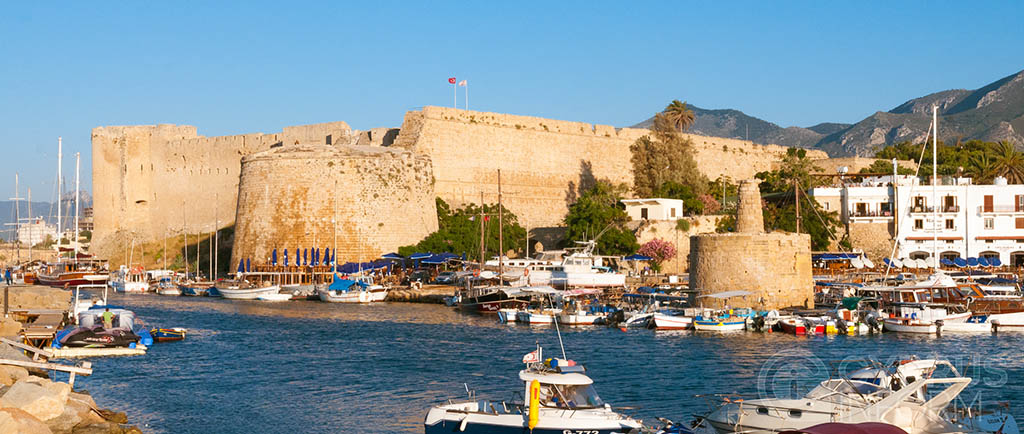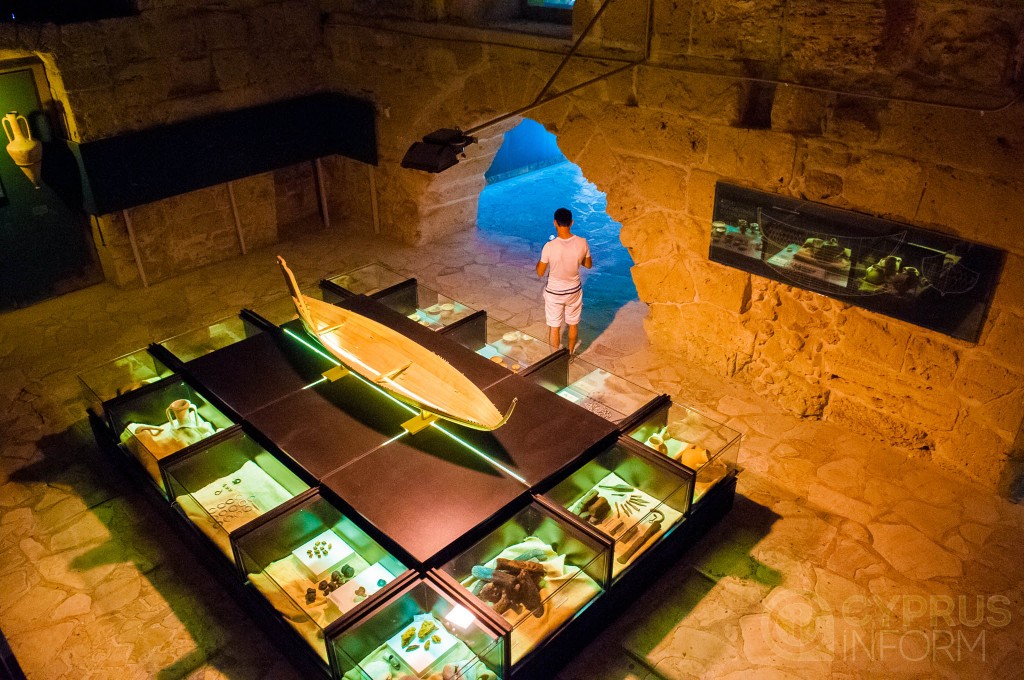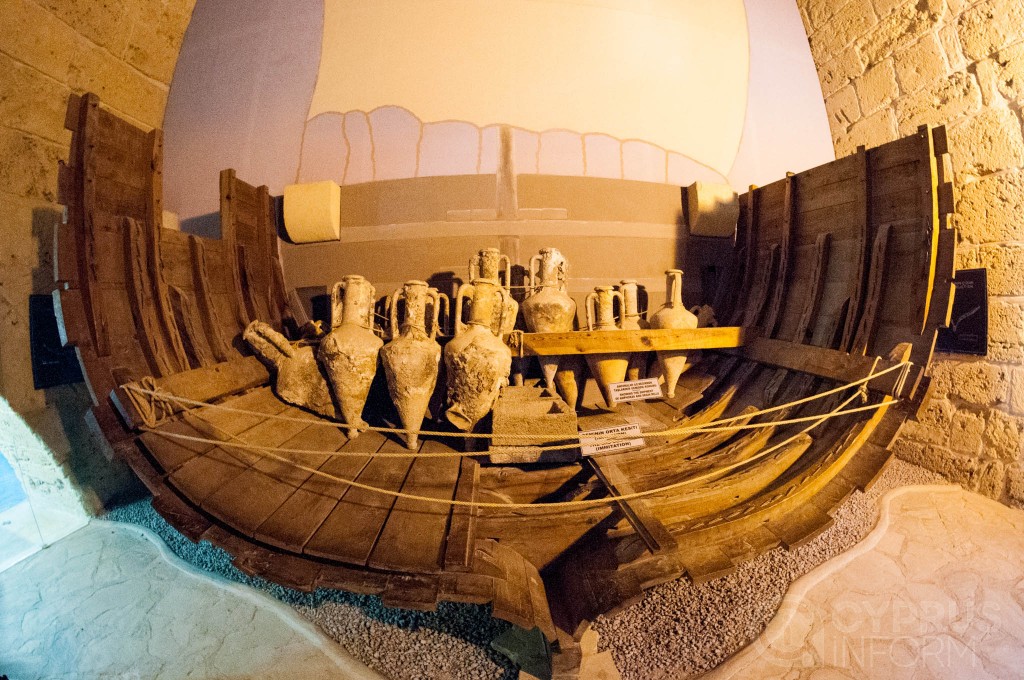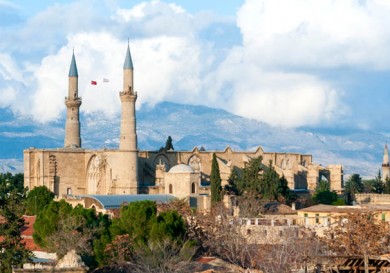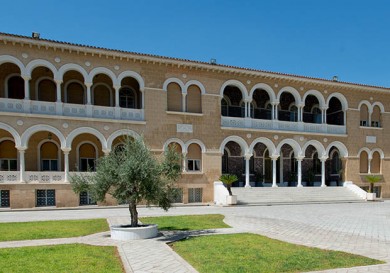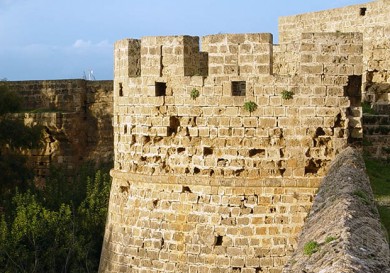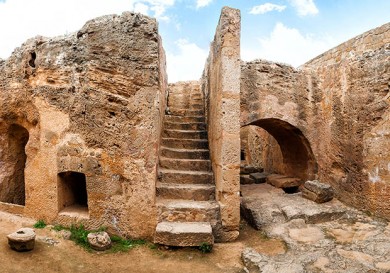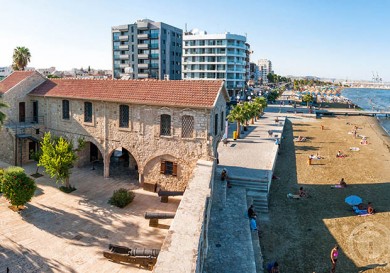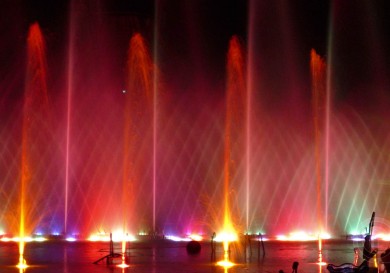The history of the castle in Kyrenia
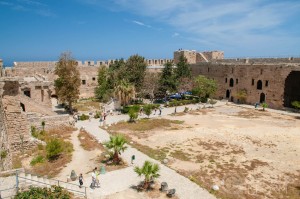 Kyrenia Castle was first mentioned in 1191 B.C. During the Third Crusade in the same year, King Richard the Lion heart defeated the emperor of Cyprus, Isaac Comnenus, whose throne was in Kyrenia Castle.
Kyrenia Castle was first mentioned in 1191 B.C. During the Third Crusade in the same year, King Richard the Lion heart defeated the emperor of Cyprus, Isaac Comnenus, whose throne was in Kyrenia Castle.
Studies carried out in the castle and the surrounding area takes us to the Roman period, around the 1st century B.C. However, archaeologists and historians have not yet been able to establish the exact date of the construction of the castle.
The castle’s construction in Kyrenia was important for the protection of the island. Based on historical records and research, the history of Kyrenia castle can be divided into three periods.
The castle during the early Byzantine period, 7th – 12th century A.D.
It is thought that the Venetians built the castle in the 7th century A.D. on fortifications left over from the powerful Knights Templar, to defend Kyrenia from Arab raids. It was both rebuilt and changed ownership several times.
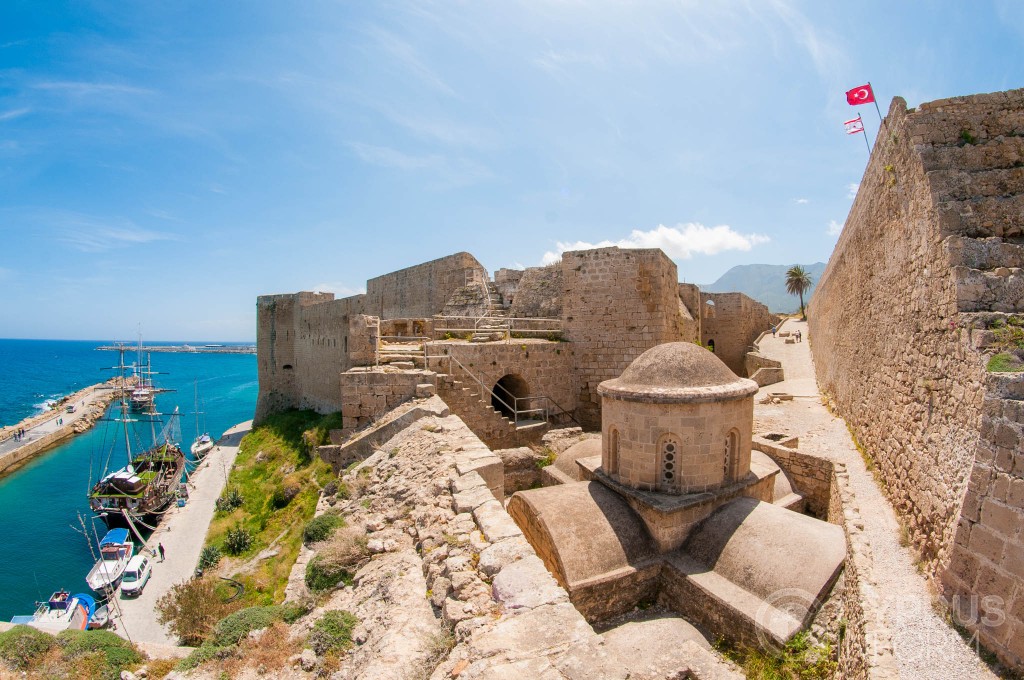 The castle during the reign of the Lusignan, 1208-1211 years B.C.
The castle during the reign of the Lusignan, 1208-1211 years B.C.
The castle was once again rebuilt during the reign of the Lusignan dynasty, and has been unchanged since then to the present day. The area of the castle was extended and the tower and main entrance were completed.
The Lusignan used Kyrenia Castle as a place for rest and as a royal residence in times of peace, as well as a place to shelter during the war.
The castle during the Venetian period, 1489-1570 years B.C.
The castle received a lot of significant damage during the Venetian’s invasion in 1373. In the mid 15th century, Cyprus passed under Venetian rule and the castle underwent alterations. By 1540 the Venetians had considerably strengthened the walls and towers of the castle to accommodate more modern guns.
Despite all the changes in 1570, almost without resistance, the castle was handed over to the Ottomans, and remained in their hands being used as a military base for about three centuries.
Since 1878, during the British colonial administration, the castle was used as a prison and a police barracks and training school.
How is the castle used today?
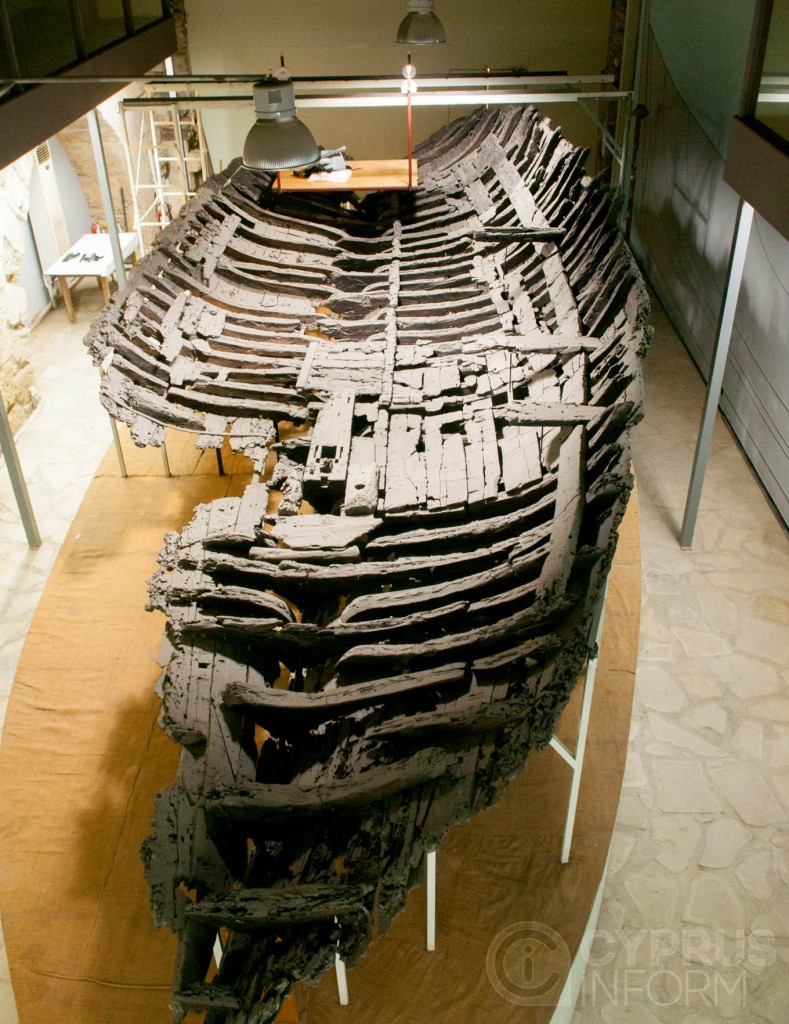 Kyrenia Antiquities took custody of Kyrenia castle in 1950, but it reverted to British control during the EOKA turmoil. With the independence of Cyprus in 1960, Kyrenia Castle returned to the jurisdiction of the Department of Antiquities and was opened for public visits.
Kyrenia Antiquities took custody of Kyrenia castle in 1950, but it reverted to British control during the EOKA turmoil. With the independence of Cyprus in 1960, Kyrenia Castle returned to the jurisdiction of the Department of Antiquities and was opened for public visits.
After the transition of the castle into a museum, a shipwreck was discovered in Kyrenia in so-called Northern Cyprus.
The Shipwreck Museum in Kyrenia is considered one of the most interesting museums in the city.
The exhibits of the Shipwreck Museum in Kyrenia:
- A well-preserved section of the Kyrenia ship’s hull, made in the 4th century B.C.;
- More than 400 wine amphorae;
- Numerous dishes, spoons, bowls and pitchers;
- Ship ballast in the shape of millstones;
- Icons and works of art that were confiscated from churches around the city;
- Photographs from the place of the shipwreck.
On the grounds of the castle, in addition to the museum of the shipwreck, is a recently restored Byzantine church of Saint George.
Interesting Facts
- The main exhibit of the museum is an old merchant ship discovered by researchers in 1965. For 2 years scientists and engineers have been transferring the parts to be inventoried before it’s raised to the surface.
- The ship’s hull is 15 meters long and was built using only high-quality pine.
- Containers filled with almonds were also raised from the seabed. After analyzing the almonds, the researchers concluded that the most accurate date of the shipwreck was 288 B.C. An analysis of the ship’s wood and its condition suggests that the ship was about 80 years old when it sank, and its construction dates back to 298 B.C.
How to get to the castle
The castle, which is located to the north-east of Kyrenia, is the dominant structure in the harbour.
In the Republic of Cyprus you can only reach Kyrenia Castle by car, taxi or with a sightseeing tour.
The Museum Centre in Kyrenia castle is open daily from 09:00 until 18:30 in summer, and 16:30 in winter.




